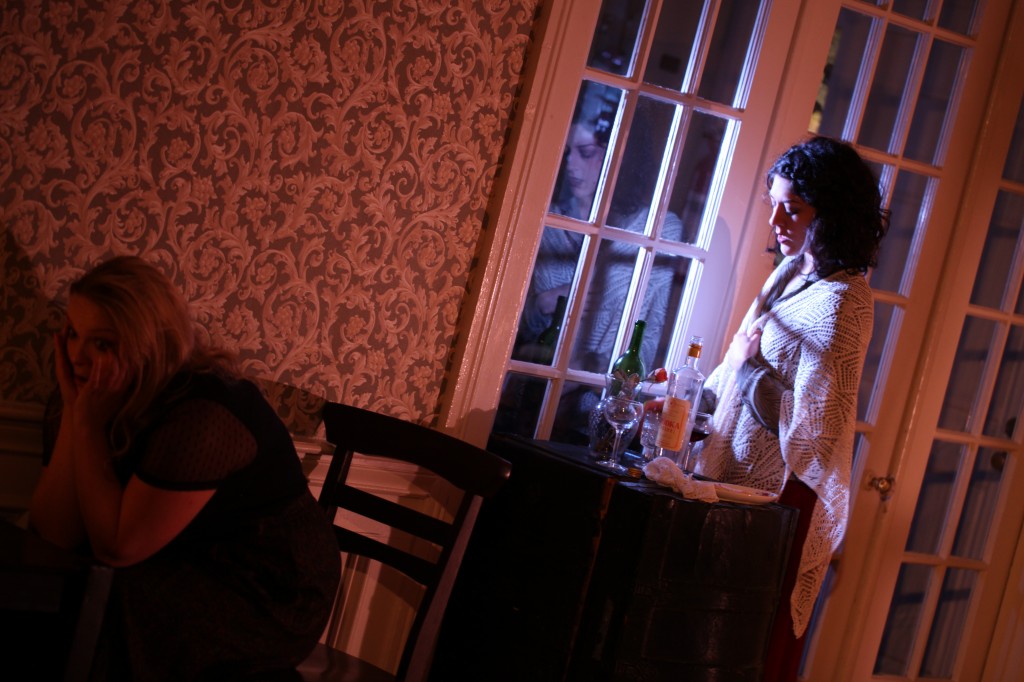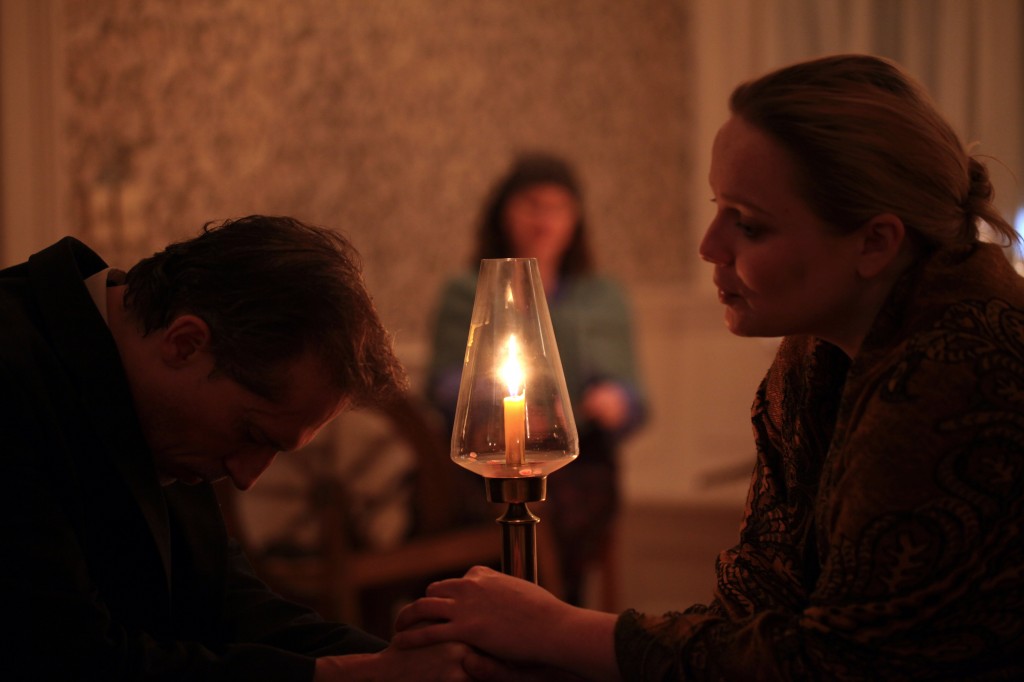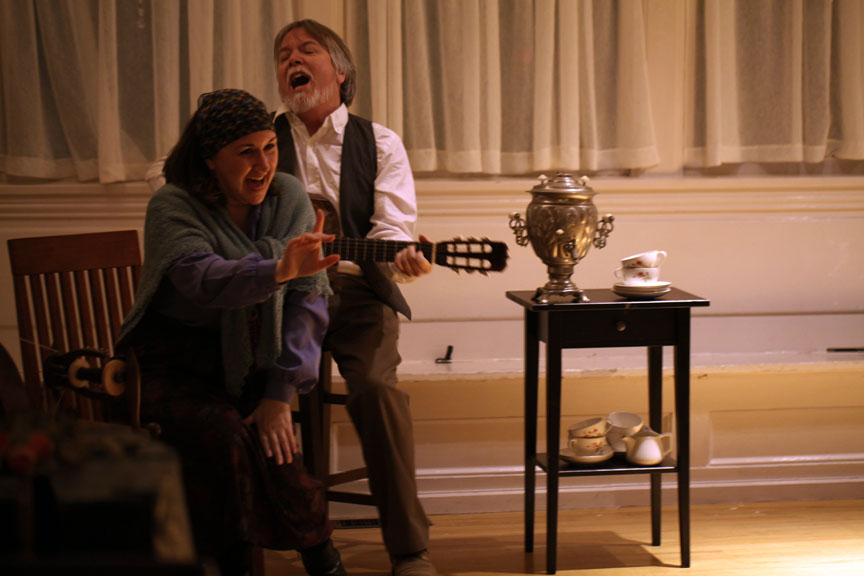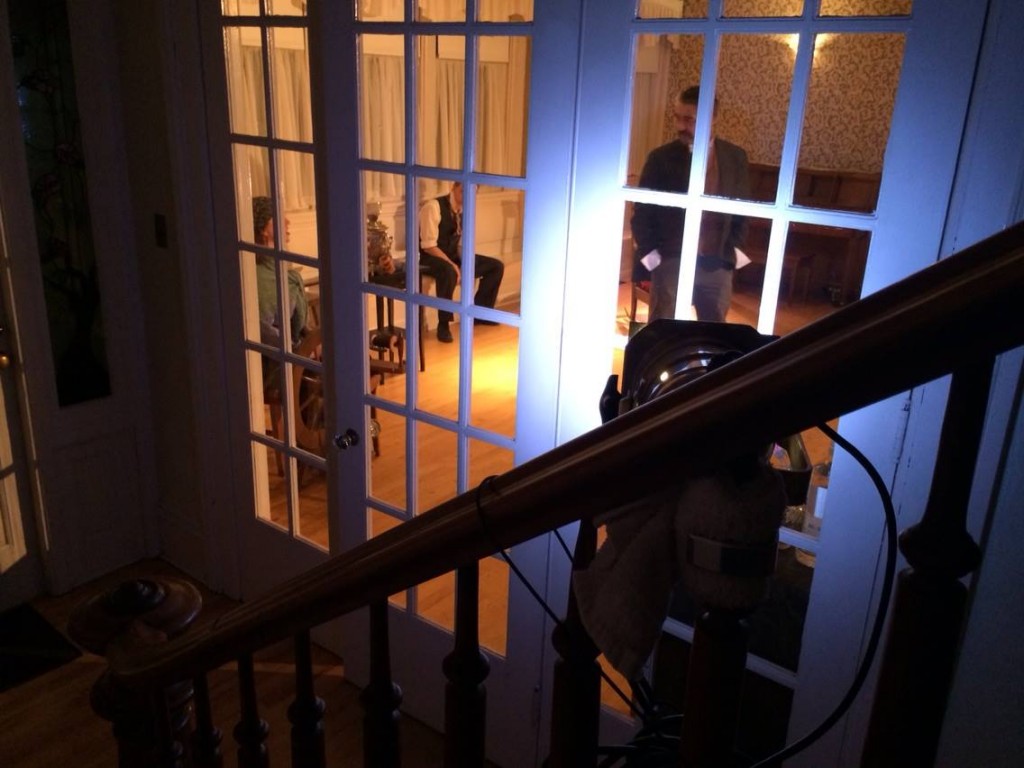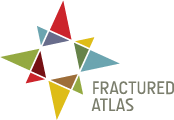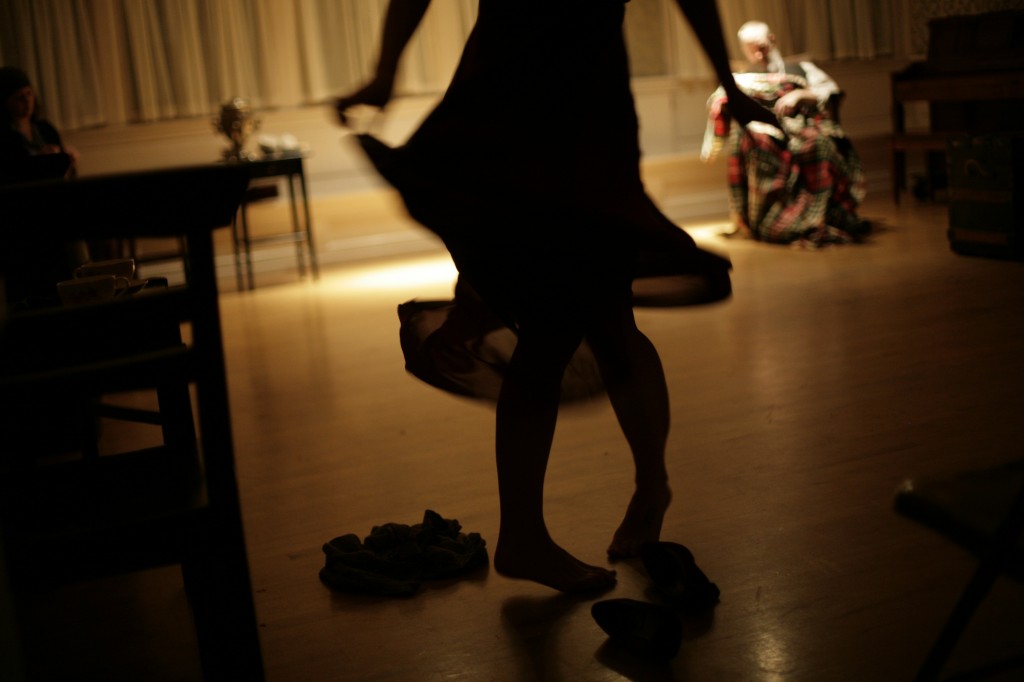
Zhenya Lavy, Samantha Routh & Scott Maddock | Uncle Vanya (2014) | Photo: Annie Paladino
It’s no secret that Omar Willey, publisher of The Seattle Star, takes an intellectual approach to his reviews of theatre — to all of his writing — bringing the work into focus that is simultaneously clarifying and expansive, equally accessible to the “who, what, should I go” crowd and satisfying to the academically minded. Considering his own personal experiences making theatre and also working with theatre illuminaries around the world — including Jerzy Grotowski — Willey truly is one of the most ideal local audience members for Akropolis work. (Until his death last May, Herb Blau was another “ideal” person in APL audiences.) For us, “ideal audience members” are people who truly understand where we are coming from artistically — and whether or not they like a particular piece we have created is irrelevant to their capacity to witness it fully and speak about it at every level: text and intertextuality, metaphor, symbol, music, history, aesthetic, physicality, performance…. Their critical apparatus is exceptional. They witness a piece with a perspective that is open and educated well beyond the confines of average American pre-conceptions about what theatre “ought” to be or what is most commonly viewed on stages in Seattle or New York. We usually receive feedback from such people over drinks sometime after a production has closed.
And so, it is especially humbling when someone from among our ideal audience also writes about our work. Willey saw our previous productions of Jeanne the Maid: A Trial and Execution of Jeanne D’Arc and Seneca’s Oedipus but was out of the country for Dream of a Ridiculous Man. This is the first time he has written about us. It’s well-wrought criticism, and we hope our friends will read the entire thing. Here is an extended sample:
Proof of [Chekhov’s] durability is that now, a century after his death, next to Shakespeare’s the most popular plays on the British stage are those of Anton Chekhov.
That popularity however has been truly unfortunate for the American stage. Most translations of Chekhov’s plays have been British rather than American. […]
American theater in its dogged attempt to be British has absorbed all these problems anytime it treats Chekhov, but worse, has absorbed the problem of having no real analogue for either British or Russian society. Instead, it is largely powerless to absorb either. The almost completely clueless adaptations of Chekhov on American stages have been the worst kind of Deadly Theater, socially uprooted, unidiomatic, aimless, remote. The American answer to this problem usually has been to adapt Chekhov, which is to say ignore about half of what makes Chekhov Chekhov. […]
If one believes Rainer Schulte, a successful translation requires the translator to capture three things: the specifics of the life and culture of the country in which the author wrote; historical features of the period in which it was written; and the original author’s sensibility. Not only has Zhenya Lavy’s translation excised the Anglicisms that have clung to English versions of Chekhov like lampreys on a shark’s body, it also has restored to the play certain things that other translators have eliminated simply because they figured the audience was either too stupid to notice or simply didn’t care about (such as Syuzhet, dostoyniy kisti Ayvazovskovo–a reference to Russian painter Ivan Aivazovsky). Yet the text speeds along. By adhering to the distinctly shorthand manner of the original language, in which subjects and objects are often implied rather than stated, the English version explains less and expresses more. […]
In short, this is a much different Chekhov from what one is used to seeing on the Seattle stage. It is simultaneously Russian and American, historical and present, funny and melancholy, grotesque and elegant. It is many other contradictory things–just as it should be. Above all, it is alive. […] I hope future productions in town take the hint.
Check out The Seattle Star if you’re hungry for cultural and political journalism done better. You’ll be pleased you did.
Read the entire article here:
“Burying the British: Uncle Vanya,” by Omar Willey, The Seattle Star, March 26, 2014



